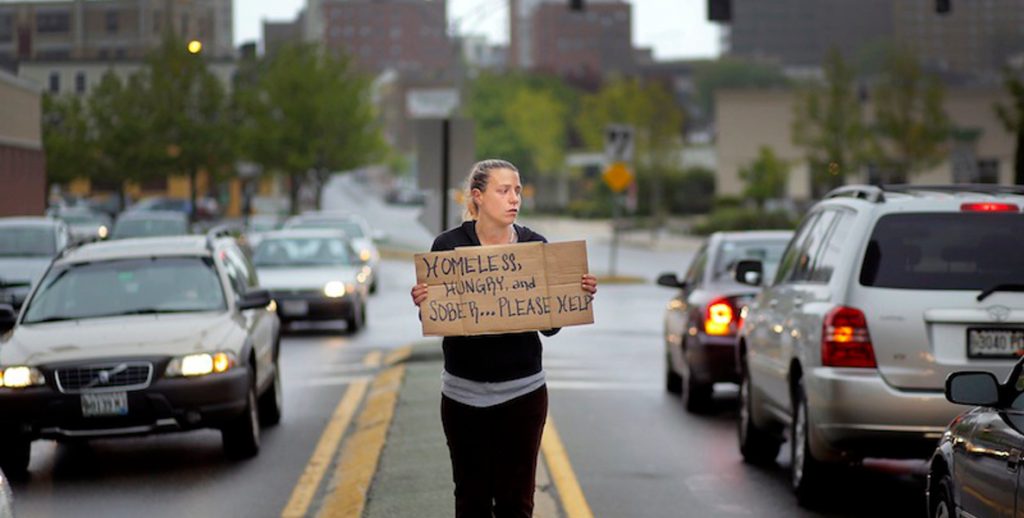In many cities across the United States, panhandlers carrying cardboard signs and begging for money at busy intersections is a common sight. Several cities have adopted aggressive and disciplinary enforcement tactics to rid their city of panhandlers. Los Angeles and Dallas, for example, have OK’d crackdown on homeless encampments. The city of Portland, Maine initially outlawed begging on street medians, but after the law was struck down in court and the tactic of removing medians from streets to deter people from panhandling proved to be ineffectual, the city is trying a different approach.
Starting in April, Portland will hire several people experiencing homelessness a day at minimum wage and assign them to clean parks and public spaces. A city worker will drive a van to parts of the city with a lot of panhandlers. The city worker will then offer jobs until five people accept. Participants are not only going to get job training, but are only going to receive compensation after completing the full six hours of work. Portland is following the lead of Albuquerque, a city that moved away from punitive approaches to homelessness by offering homeless people jobs at minimum wage after police in the city fatally shot a schizophrenic homeless man.
Portland’s initiative is being piloted as a two-days-a-week program that will run from April to November. Like with many similar programs, it is looking to find a consistent source of funding. One of the ways the program is likely to get funded is through the Community Block Grant program issued through the federal government. However, President Donald Trump has proposed to eliminate this block grant in his budget.
Read the full story here (via The New York Times)
Here’s what else we’re reading

